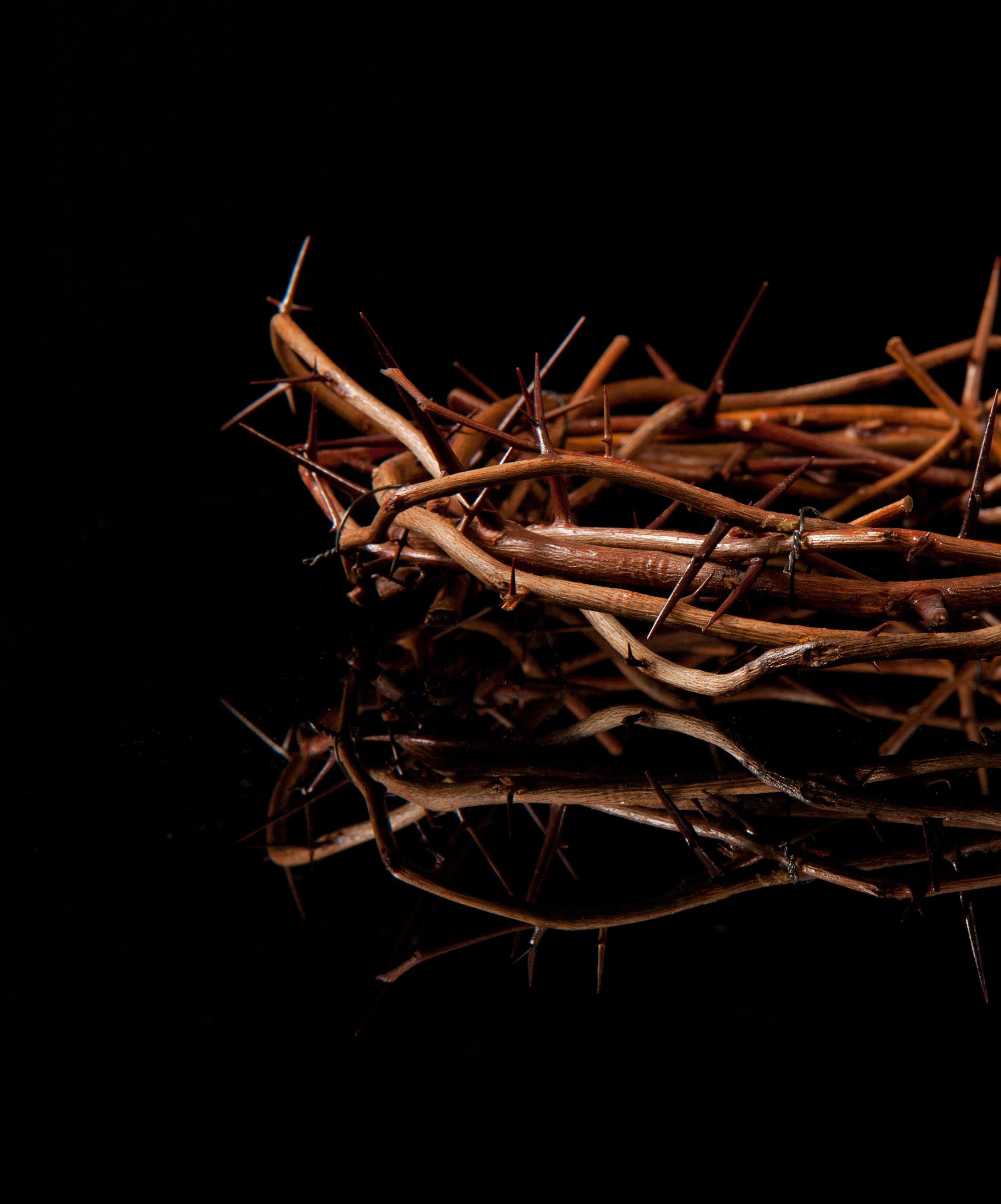
3 minute read
father, into your hand i commend my spirit.
Rev. Dr. Wes Avram
As in others of Jesus’ words from the cross, our Lord quotes scripture. Here his words are from Psalm 31. Jews hearing might find the flow of the psalm come back to them–as if completing the sentence in their hearts. Like the words of a song, one line that evokes the whole thing. Like the “tok” you say when I say “tik.”
Psalm 31 is a song of deliverance. The singer laments their position, feeling put upon by life, hemmed in by circumstance, threatened by enemies (natural or human) who seek to undo them. The singer is in distress.
Contributors
Pinnacle Pastoral Staff
Rev. Dr. Wesley Avram
Senior Pastor/Head of Staff
Rev. Erik Khoobyarian
Executive Associate Pastor
Rev. Dr. Michael Hegeman
Associate Pastor in Education
Rev. Leah Quarles
Associate Pastor for Family Ministries & Congregational Life
We don’t need to be directly attacked to feel this way. There are times when we feel vulnerable for many reasons, or out of control, or on the edge of something that will happen whether we like it or not–even death.
In those moments our salvation might not be in changing things we can’t change, but in seizing the one act of freedom that can never be taken from us, the one word our spirit can speak even when our mouths make no sound or our minds shape no thoughts. We can give our spirit to the One who made it. We can give ourselves to God.
To commend our spirits to God is to stake a claim against destruction, and against despair, and against the demonic. It’s to remember who we are, and whose we are, and be the freest person we’ll ever be—even when we feel the opposite. It’s to be delivered back to ourselves and over to God. It’s to refuse the power of death, even when death itself (or other things we can’t control) might still come. It is to lay the groundwork for Resurrection.
Ben McConaughy Spiritual Director
Rev. Margo Walter Ordained Minister & Spiritual Director
Rev. Dr. Bob Claus Board Certified Chaplain who has served at St. Joseph’s Hospital and Barrow Neurological Institute since 2018.
BY DR. ILONA KUBIACZYK-ADLER
The main portion of our Good Friday service this year will be Requiem by John Rutter. In the Western Church tradition, Requiem Mass, also known as Missa pro defunctis (Mass for the dead), is offered for the repose of the souls of deceased, and typically celebrated in the context of a funeral. The name Requiem is derived from the first words of the liturgy Requiem aeternam dona eis, Domine (Eternal rest grant them, O Lord).

On Good Friday we commemorate the crucifixion of Jesus Christ and his death on Calvary. It is in our Presbyterian tradition to observe this day with worship services, and in many protestant traditions to use special solemn music to enhance the experience for the congregants. On Good Friday we reflect and meditate on the Love of God revealed in the suffering and death of Jesus. This is also a good opportunity to self-reflect and understand God’s eternal Love for all of us. John Rutter’s setting of Requiem Mass is particularly appropriate for this meditation, and it will hopefully serve as our prayer for Christ and all with whom he suffers.
John Rutter composed his Requiem in 1985 and dedicated it to his father who died the previous year. The version we are going to perform on April 7, 2023, is scored for a soprano soloist, mixed choir, and a chamber ensemble consisting of flute, oboe, cello, timpani, glockenspiel, harp and organ. The score was published in 1986 by the Oxford University Press in Latin and English.
Four movements of Rutter’s Requiem were first performed in March 1985 at Fremont Presbyterian Church in Sacramento, CA. The first complete performance happened in October 1985 at Lovers’ Lane United Methodist Church in Dallas, TX. Both performances were conducted by John Rutter. Movement number 6 “The Lord Is My Shepherd” was added to the Requiem after it was written as a separate anthem in 1976.
The whole piece lasts about 40 minutes and consists of 7 movements:
1. Requiem aeternam (combines Introit and Kyrie in the original mass setting)
2. Out of the Deep (a version of Psalm 130)
3. Pie Jesu (text concluding the Dies Irae sequence from the Requiem Mass)
4. Sanctus (with Benedictus)
5. Agnus Dei (Lamb of God; with quotes from Book of Job and Book of John)
6. The Lord Is My Shepherd (Psalm 23)
7. Lux aeterna (quotes words from the 1662 Book of Common Prayer and communion chant from Requiem)
Come and be moved. With soaring vocal lines of the famous Pie Jesu, the gentleness and ethereal beauty of this masterpiece will help you navigate the emotions of the Holy Week. Rutter’s Requiem is one of those pieces that are best experienced in the perfectly suited acoustics of a church, ideal for choral singing, organ, instrumentalists, and deep meditation. You will not regret the experience and transformation that in person and undistracted listening to sacred live music offers.
Requiem
by John Rutter
Good Friday, April 7 | 7 pm Pinnacle Sanctuary
Live-streamed at pinnaclepres.org/watch









